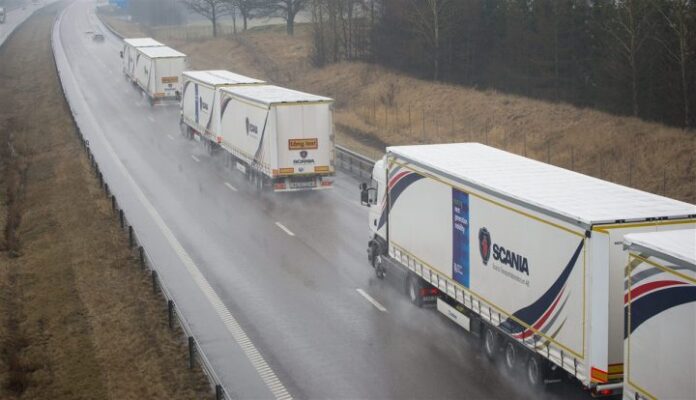Fleet management and telematics activity expected to expand, evolve in the new year.
Editor’s Note: With 2017 now upon us, RCR Wireless News has gathered predictions from across the mobile telecommunications space on what they expect to see in the new year.
Businesses everywhere are looking for ways to grow profits and cut costs in 2017. Those that utilize fleets of vehicles to operate their business and service their customers face additional challenges: rising gas prices; challenges such as vehicle maintenance brought on cold weather, pot holes, snarled traffic and other “gifts” caused by Mother Nature; and keeping drivers safe and productive.
They’re also seeing a wealth of productivity and tracking apps and tools that are design to simplify their day-to-day activities. However, it’s becoming clear that one-off applications aren’t enough to solve the complex challenges that businesses of all sizes are facing. In 2017, look for the following trends in the fleet management and telematics industry.
Integration of multiple functions
Telematics can no longer sustain by providing standalone tracking functionality. With the evolving complexities in the industry, telematics/fleet solution providers will be integrating with other software/service providers and relying on their sector expertise to provide add-on functionality and differentiation in the industry.
Data management and predictive decisions
Anyone can provide tracking and other data points pertaining to fleets. With the help of off-the-shelf hardware that functionality is easily found. What makes a solution different is the interpretation and presentation of that data in a relevant manner for the customer.
In 2017, fleet management solutions will have to process data that provides key performance parameters – through improved dashboards and reports – to help customers save time and money, and take corrective measures.
Predictive maintenance
Everyone knows performing vehicle maintenance on time, every time, keeps vehicles on the road and running efficiently, saving both time and money. Along with regular, scheduled maintenance and services, fleet maintenance solutions will evolve to provide automatic, predictive scheduling based on the individual vehicle vs. the calendar, and will also provide ad-hoc service management between the fleet owner and the maintenance facility. The cost management associated with resource depreciation linked to driving habits and routes will provide key insights on fleet maintenance programs.
Fuel management
The International Energy Agency predicts the huge surplus of oil that’s been sloshing through global markets is set to evaporate in 2017, and with that you can bet the price of gas will rise. It’s already starting to tick up at pumps around the country. Prices are increasing in the wake of agreements reached between members of OPEC and other producers to cap oil production at certain levels. As a result, fuel will remain one of the key cost components for the transport industry. Fleet management/telematics companies will need to provide key insight into fuel usage through fuel card management via integration directly into their solution, improved features such as real-time routing and predictive maintenance.
Safety
Driver safety will continue to evolve from basic safety events reporting to more interactive and rewarding programs. There is continued interest in “gamification” that allows the drivers to play an active role in safety improvements, however, whether that push takes hold remains to be seen. Other enhancements more likely to gain a foothold include driver education programs, incentive programs and industry scorecards – all of which are reliable options to enhance driver safety and improve fleet health.
Video
Dashcams and other real-time video recording peripherals are the next step in safety evolution. Live video feeds, incident recording and driver alerts will stand as big differentiators in the coming years.
On-demand trucking service
There will be an increase in companies that provide on-demand trucking services with Uber-like functionality. This industry shift will result in more efficient resource management and will generate a new market segment for telematics service providers to act as an intermediary.
Businesses of all sizes will face challenges to grow the bottom line, reduce costs and service their customers better. Integrated fleet management solutions will play a key role in helping businesses overcome these challenges and find success.
Wyn Partington is the VP of product and marketing of NexTraq. With nearly 20 years of experience in the technology industry, Partington brings extensive knowledge and strategic insight to his role. Partington has been with NexTraq for more than eight years and has a proven track record in planning, building and executing successful marketing strategies to increase brand identity and drive lead generation. Prior to joining NexTraq, he worked for Flexsys Rubber Chemicals and QAD. Partington holds a Bachelor of Science degree in Computer Science from Liverpool John Moores University.

